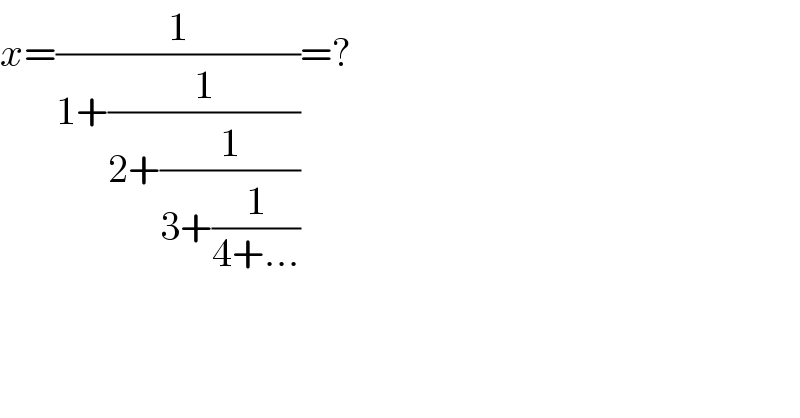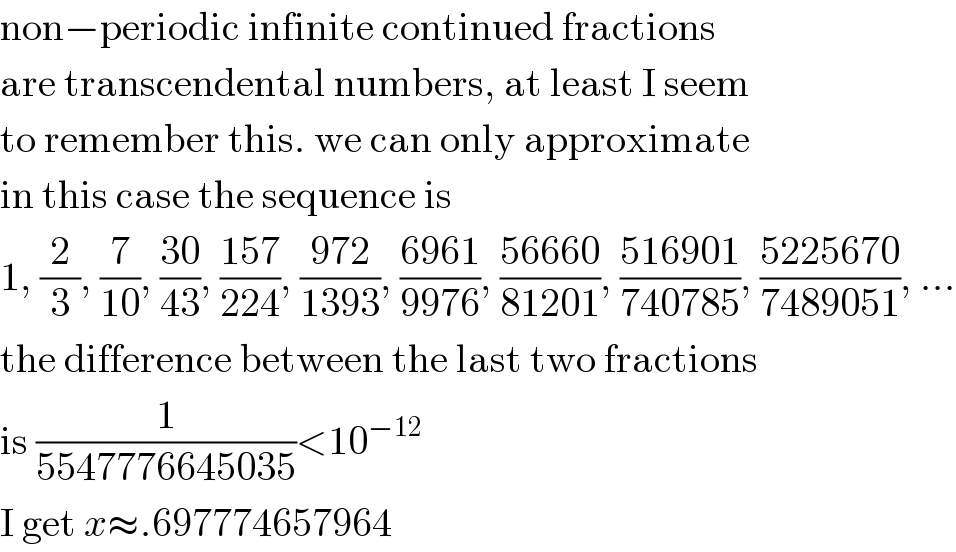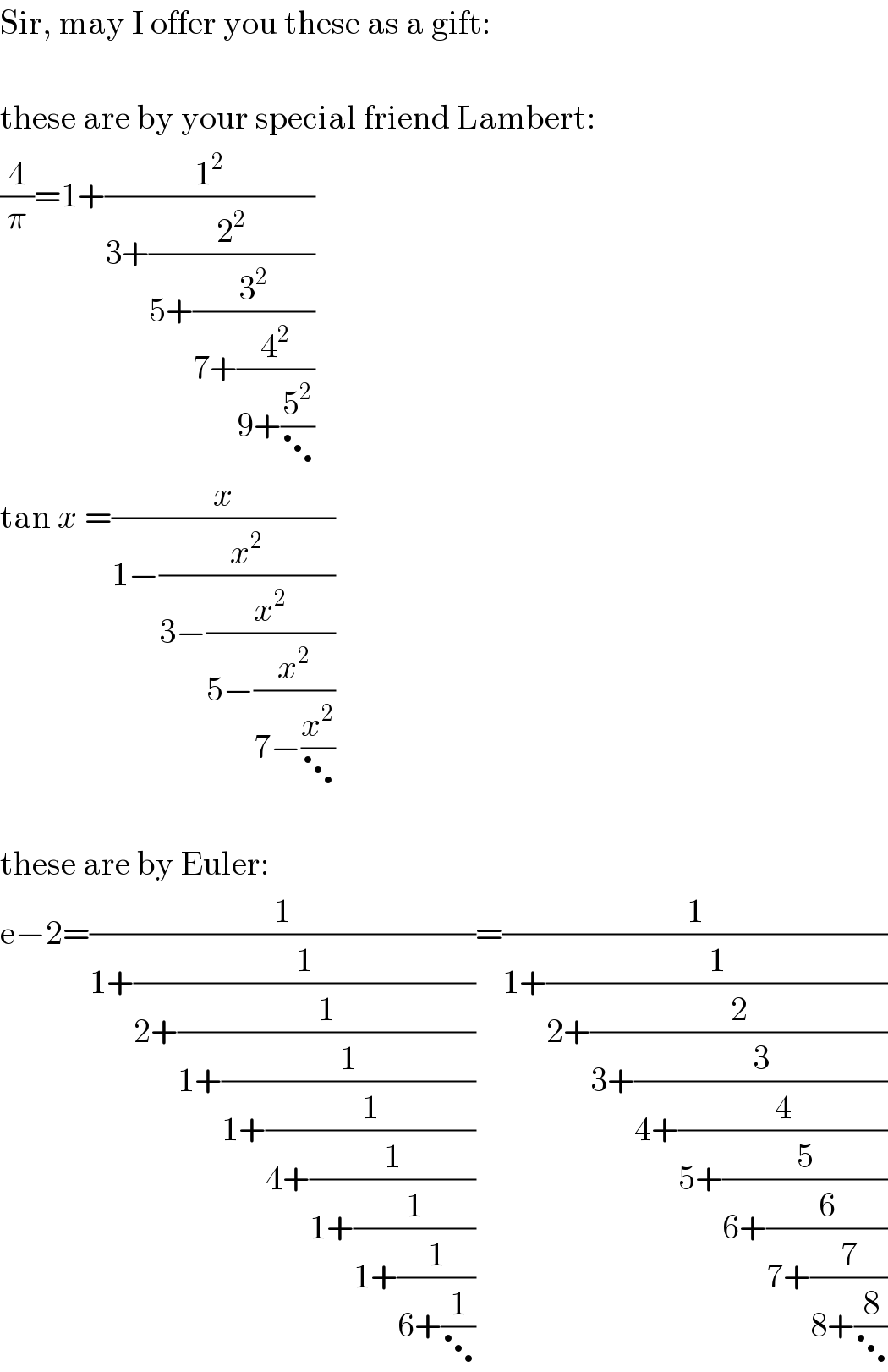
Question and Answers Forum
Question Number 45356 by MrW3 last updated on 12/Oct/18

Answered by MJS last updated on 12/Oct/18

Commented by MrW3 last updated on 12/Oct/18

Commented by MJS last updated on 12/Oct/18

Commented by MrW3 last updated on 13/Oct/18

